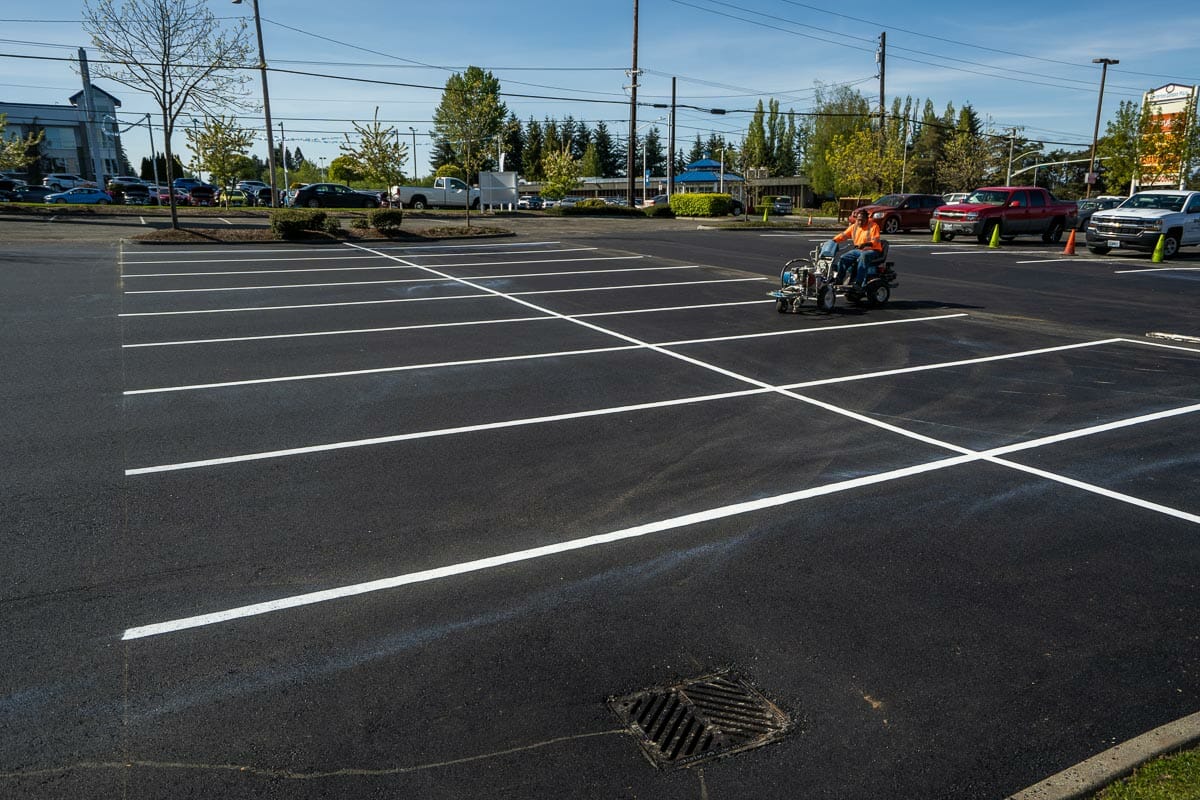Concrete vs. Asphalt: Pros and Cons
When it comes to choosing a driveway surface, homeowners often face the classic dilemma: concrete vs. asphalt? Both materials offer durability and functionality, but they have distinct characteristics that make them better suited for different needs and preferences. This guide will delve into the pros and cons of concrete vs asphalt driveway options, helping you make an informed decision that aligns with your budget, aesthetic preferences, and lifestyle.
Concrete: Pros and Cons
Concrete driveways are known for their strength, longevity, and design versatility.
Pros:
- Durability: Concrete is exceptionally durable and can withstand heavy loads, making it a good choice for high-traffic driveways or those that will see frequent use by heavy vehicles.
- Longevity: A well-maintained concrete driveway can last for several decades, offering a long-term return on investment.
- Design Versatility: Concrete can be customized with various colors, stains, patterns, and finishes to complement your home’s architectural style and enhance curb appeal.
- Low Maintenance: While periodic sealing is recommended, concrete generally requires less maintenance than asphalt.
Cons:
- Higher Initial Cost: Concrete driveways typically have a higher upfront cost compared to asphalt.
- Susceptibility to Cracking: Concrete can be prone to cracking, especially in regions with freeze-thaw cycles. Proper installation and maintenance are crucial to minimize cracking.
- Staining: Concrete can be susceptible to staining from oil, grease, and other substances. Regular cleaning and sealing can help prevent stains.
- Repair Challenges: Repairing cracks or damage in concrete can be more complex and costly compared to asphalt repairs.
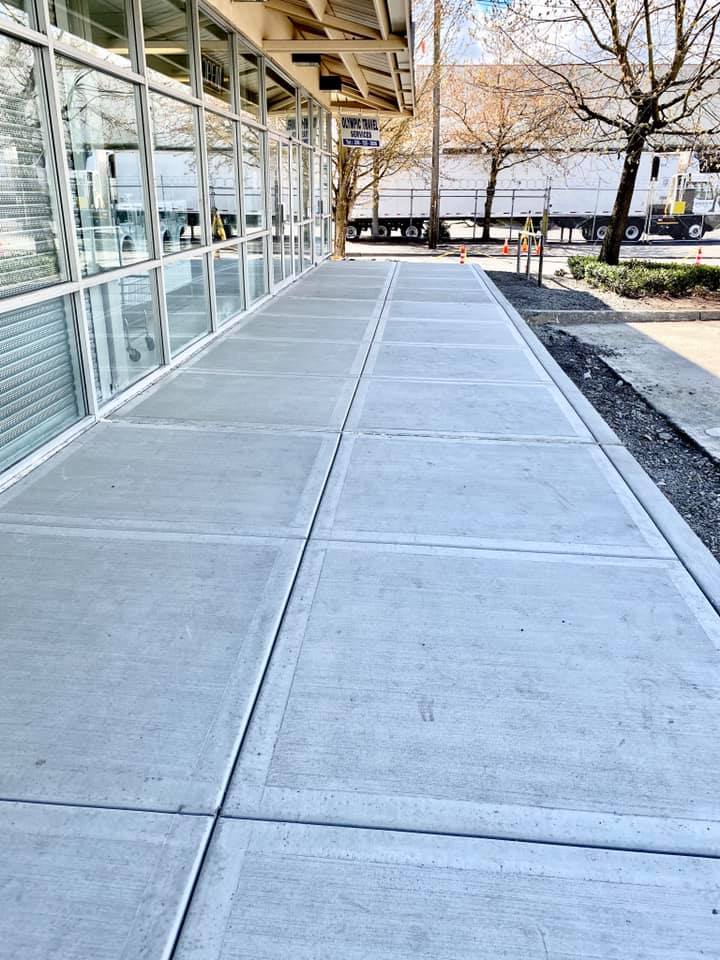
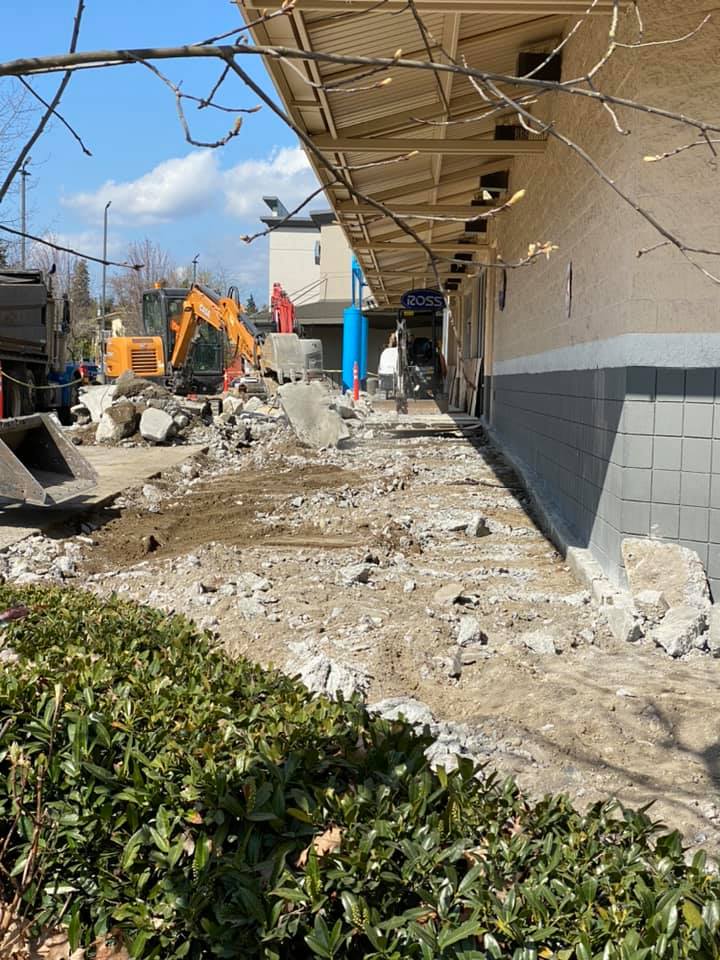
Asphalt: Pros and Cons
Asphalt driveways offer affordability, flexibility, and ease of repair.
Pros:
- Lower Initial Cost: Asphalt is generally more affordable than concrete, making it a budget-friendly option for driveway paving.
- Flexibility: Asphalt’s flexibility makes it less prone to cracking in cold weather compared to concrete.
- Ease of Repair: Asphalt repairs, such as patching and sealcoating, are relatively simple and less expensive compared to concrete repairs.
- Quick Installation: Asphalt driveways can be installed relatively quickly, minimizing disruption to your property.
Cons:
- Shorter Lifespan: Asphalt typically has a shorter lifespan than concrete, requiring resurfacing or replacement sooner.
- Maintenance Requirements: Asphalt requires regular maintenance, including sealcoating every few years, to protect it from the elements and extend its lifespan.
- Susceptibility to Heat: In hot climates, asphalt can soften and become susceptible to rutting or deformation under heavy loads.
- Limited Design Options: While asphalt offers some color choices, it generally has fewer design options compared to concrete.
Concrete vs Asphalt: Key Considerations
When choosing between concrete and asphalt, consider these factors:
- Budget: Asphalt offers a lower initial cost, while concrete is a more significant investment with a longer lifespan.
- Climate: Concrete may be more suitable for warmer climates, while asphalt is generally better suited for regions with freeze-thaw cycles.
- Maintenance: Asphalt requires more frequent maintenance, including sealcoating, while concrete is relatively low-maintenance.
- Aesthetics: Concrete offers greater design versatility, while asphalt has a more classic and uniform look.
- Lifespan: Concrete generally has a longer lifespan than asphalt, but both require proper maintenance to achieve their maximum lifespan.
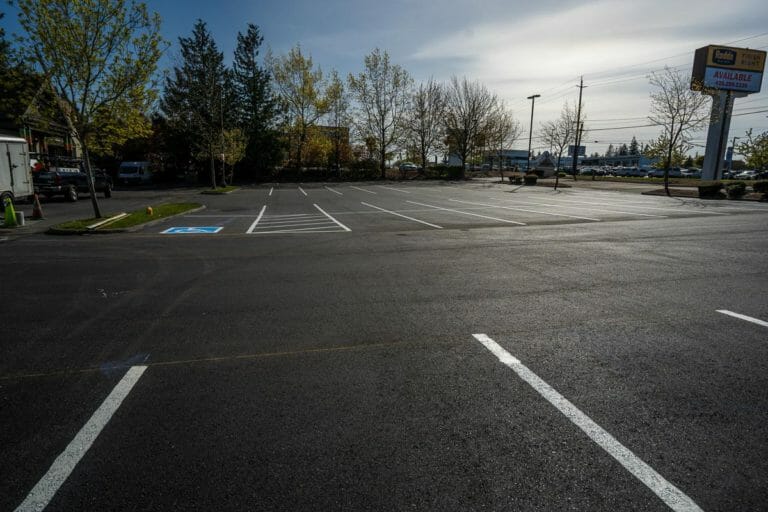
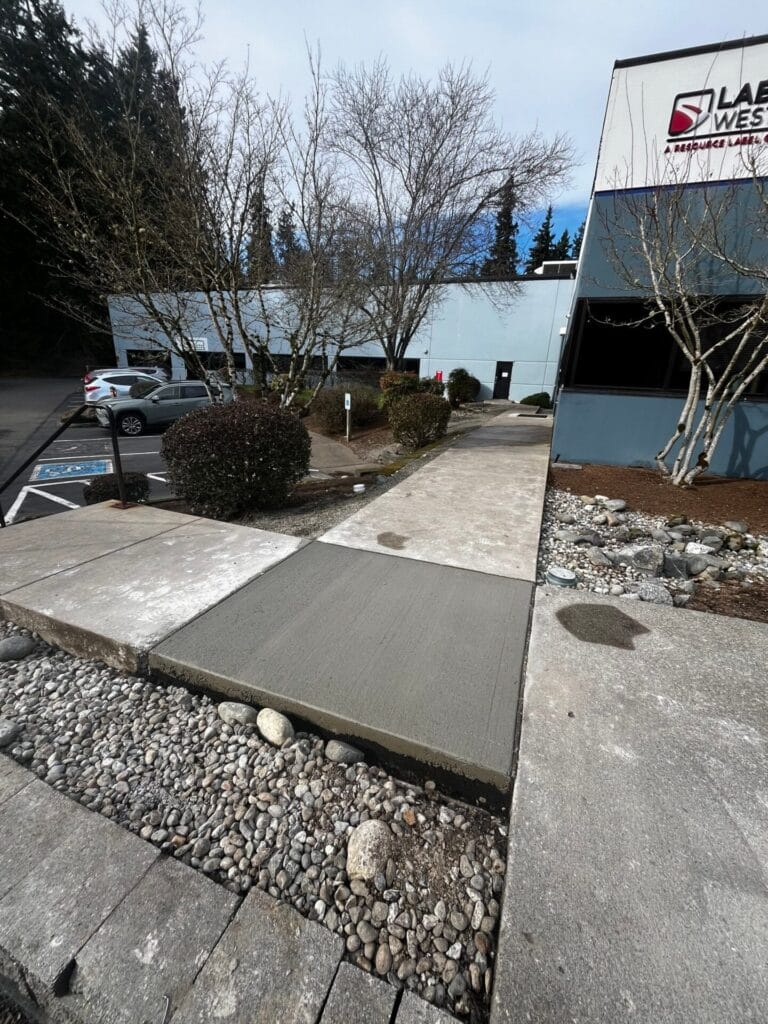
Concrete Vs. Asphalt: Which is The Right Choice?
Ultimately, the best choice between concrete vs asphalt driveway depends on your individual needs, preferences, and budget.
- If longevity and design versatility are top priorities, and you’re willing to invest more upfront, concrete may be the better choice.
- If affordability and ease of repair are more important, and you’re comfortable with regular maintenance, asphalt could be the way to go.
Consulting with a reputable paving contractor can help you assess your specific needs and make an informed decision. They can provide expert advice on the best material for your climate, soil conditions, and usage requirements.
Concrete Vs. Asphalt: Which is Cheaper?
Here comes the question most homeowners are wondering! Which material is going to be more cost-effective? Concrete is the more expensive option, usually costing $3-10 per square foot. Asphalt comes in around $2-5 per square foot. Longevity & durability are also important aspects to consider when factoring in costs.
Contact NYS Enterprises
Both concrete and asphalt offer advantages and disadvantages. By carefully weighing the pros and cons of each material and considering your specific needs and priorities, you can make a confident decision that will provide you with a durable, functional, and aesthetically pleasing driveway for years to come.
Get Started


